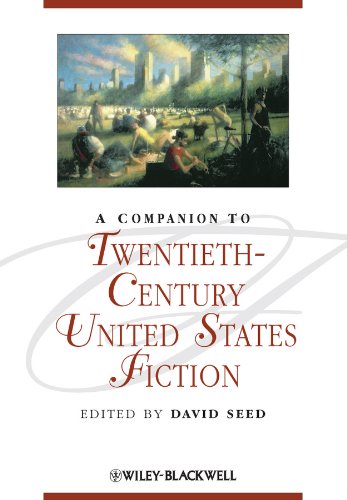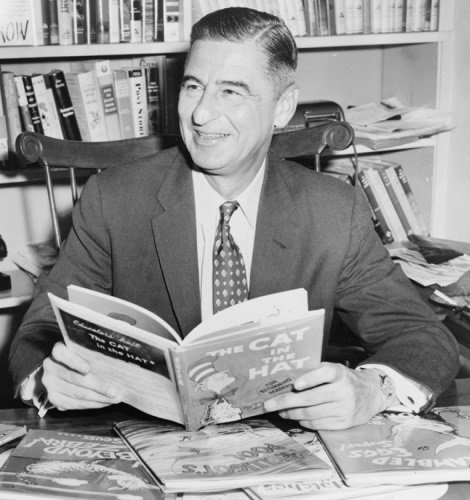David Seed
Biography
David Seed is a professor of English at the University of Liverpool.
No detailed information about his background, personal life, education, professional experience, or accomplishments has been provided or confirmed. This section serves as a general placeholder until more accurate and verified details can be collected and published.
There are many reasons why a biography might be missing or incomplete. In some cases, individuals are listed or mentioned before a profile has been written. In others, a person may wish to maintain privacy, or their contributions may not yet be fully documented. The absence of a biography does not imply a lack of importance or relevance. Every individual has a unique story, and this section acknowledges that David Seed is part of a broader context—even if the details are not yet available.
As more information becomes accessible through official records, publications, or direct input, this biography will be updated to reflect who David Seed is and what he brings to his field or role. The intention is to provide an accurate, respectful, and informative profile when the time is right.
Until then, this entry will remain simple and general. It avoids speculation and assumptions, and instead leaves space open for a future version that can properly represent David Seed's journey, achievements, and contributions. We look forward to adding more when the opportunity allows.
For now, David Seed is acknowledged here without further detail, with the understanding that every person’s story is valuable—even if it hasn’t yet been told.
- Gender
- Male
- Place of birth
- Nelson
- Birth date
- 26 November 1946
Books

Some contributions to the theory of projective representations of finite groups
David Edward Seedhouse

Hardie's garden, field and flower seeds
David Hardie Seed Co

Hardie's 50th anniversary, 1899-1949
David Hardie Seed Co

Hardie's garden book
David Hardie Seed Co

Plant Hardie's seed for hardy plants
David Hardie Seed Co

Plant Hardie's seed for hardy plants
David Hardie Seed Co

Plant a vegetable garden for victory
David Hardie Seed Co

Plant a garden for national defense
David Hardie Seed Co

Hardie's garden book
David Hardie Seed Co

Hardie's garden book
David Hardie Seed Co

Hardie's spring seed annual
David Hardie Seed Co

Hardie's spring seed annual
David Hardie Seed Co

Hardie's thirty-second seed annual for 1931
David Hardie Seed Co

Hardie's thirtieth seed annual for 1929
David Hardie Seed Co

Hardie's Twenty-ninth seed annual, 1928
David Hardie Seed Co

Hardie's 27th seed annual, 1926
David Hardie Seed Co

Hardie's 26th seed annual, 1925
David Hardie Seed Co

Hardie's 25th seed annual, 1924
David Hardie Seed Co

Hardie's 24th seed annual
David Hardie Seed Co

Hardie's 23rd seed annual
David Hardie Seed Co
![Annual catalog [of] vegetable, field and flower seeds - David Hardie Seed Co](/assets/images/nophoto.jpg)
Annual catalog [of] vegetable, field and flower seeds
David Hardie Seed Co

Annual catalogue of vegetable, field and flower seeds
David Hardie Seed Co

Annual catalogue 1917 of vegetable, field and flower seeds
David Hardie Seed Co

Annual catalogue 1916 of vegetable, field and flower seeds
David Hardie Seed Co

Annual catalogue 1915 of vegetable, field and flower seeds
David Hardie Seed Co

Annual catalogue 1914 of vegetable, field and flower seeds
David Hardie Seed Co

Annual catalogue 1913 of vegetable, field and flower seeds
David Hardie Seed Co

Annual catalogue 1912 of vegetable, field and flower seeds
David Hardie Seed Co

Annual catalogue 1911 of vegetable, field and flower seeds
David Hardie Seed Co

Annual catalogue 1910 of vegetable, field and flower seeds
David Hardie Seed Co

Annual catalogue 1909 of vegetable, field and flower seeds
David Hardie Seed Co

Annual catalogue 1908 of vegetable, field and flower seeds
David Hardie Seed Co

Annual catalogue of vegetable field & flower seeds
David Hardie Seed Co

1904 annual catalogue
David Hardie Seed Co

Annual catalogue of vegetable field & flower seeds
David Hardie Seed Co

Annual catalogue of vegetable, field and flower seeds
David Hardie Seed Co

Handbook Of Organizational Citizenship Behavior
David L. Turnipseed

Gasworker ancestors
David Loverseed

History of the Marple Gas Undertaking, 1845-1949.
David Loverseed


American Travellers in Liverpool
David Seed
Liverpool was the first british port of call for most american travellers throughout the nineteenth century.

US Narratives of Nuclear Terrorism Since 9/11
David Seed
This fascinating new study examines the portrayal of nuclear terrorism in american fiction and film from the 1990s, whose production was accelerated by the events of 9/11.


Imagining Apocalypse
David Seed
This volume brings together essays on the cultural expression of apocalypse primarily in anglophone science fiction of the nineteenth and 20th centuries.

Life and Limb
David Seed
The contemporary perspectives - fiction, first-hand accounts, reportage and photographs - found in the pages of this collection give a unique insight into the experiences and suffering of those affected by the american civil war.

Ray Bradbury (Modern Masters of Science Fiction)
David Seed
As much as any individual, ray bradbury brought science fiction's ideas into the mainstream.

Ray Bradbury
David Seed
As much as any individual, ray bradbury brought science fiction's ideas into the mainstream.

Life and Limb
David Seed

Ray Bradbury (Modern Masters of Science Fiction)
David Seed
As much as any individual, ray bradbury brought science fiction's ideas into the mainstream.

Life and Limb
David Seed

Under the shadow
David Seed
An engrossing analysis of the fiction of nuclear warin pat frank's 1959 novel alas, babylon, the character helen says of her children: "all their lives, ever since they've known anything, they've lived under the shado.


Companion to Twentieth-Century United States Fiction
David Seed
Through a wide-ranging series of essays and relevant readings, "a companion to twentieth-century united states fiction" presents an overview of american fiction published since the conclusion of the first world war.

Science fiction
David Seed
Frankenstein, the time machine, star trek, dune, 1984, blade runner--science fiction has been explained as a combination of romance, science, and prophecy; as a genre based on an imagined alternative to the reader's environment; and as a form of fantastic fiction and historical literature.

Science fiction
David Seed
Frankenstein, the time machine, star trek, dune, 1984, blade runner--science fiction has been explained as a combination of romance, science, and prophecy; as a genre based on an imagined alternative to the reader's environment; and as a form of fantastic fiction and historical literature.

A companion to twentieth-century U.S. fiction
David Seed
Through a wide-ranging series of essays and relevant readings, a companion to twentieth-century united states fiction presents an overview of american fiction published since the conclusion of the first world war.


American Travel and Empire
David Seed
In this volume, leading scholars examine the interfaces between narratives of travel and empire.

Companion to Science Fiction
David Seed

A Companion To Science Fiction
David Seed
A companion to science fiction assembles essays by an international range of scholars which discuss the contexts, themes and methods used by science fiction writers.

